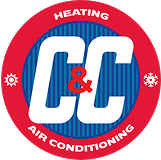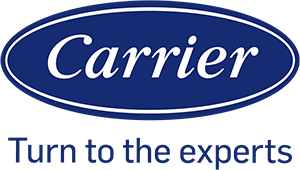Trade policies can feel like distant government decisions, but the effects are often felt right at home—literally. For homeowners in Southeast Michigan, including Wayne, Oakland, Macomb, Washtenaw Counties, and Metro Detroit, new U.S. tariffs on imported goods, especially aluminum imports, are starting to impact how much it costs to repair, replace, or maintain HVAC systems.
While the focus is on cost increases, it’s important to remember that tariffs can also have long-term benefits to U.S. consumers and businesses. Let’s look at both sides of this coin and how it affects your comfort at home.
Understanding the HVAC Industry
The HVAC industry is dealing with a tough landscape due to new tariffs on imported goods, especially steel and aluminum. These are not HVAC tariffs, but they are creating a ripple effect throughout the industry and causing higher costs for manufacturers, contractors, and ultimately consumers.
Understanding HVAC Cost Breakdowns
HVAC equipment prices are going up, and homeowners need to understand how this affects their heating and cooling systems. In this article, we will go into the effects of these tariffs on HVAC prices, the current state of the industry, and offer recommendations for those looking to install a new HVAC system.
The HVAC industry is a network of manufacturers, contractors, and distributors who work together to design, install, and maintain HVAC systems. With new technologies like smart thermostats, geothermal heating, and heat pumps, the industry is evolving with innovative heating and cooling solutions.
But the recent tariffs on imported goods, including steel and aluminum, are creating challenges. These tariffs will affect supply chains and cause higher costs and potential delays in sourcing parts for repairs and parts for new HVAC units to install. Understanding this is key for anyone in the HVAC industry, from manufacturers to homeowners.
Recent U.S. Tariff Policies
The U.S. has put tariffs on a wide range of imported products, especially steel, aluminum, and electronic components, to support domestic manufacturing. These trade policies have a direct impact on HVAC products, which rely heavily on these raw materials. Tariffs on steel and aluminum from Canada and Mexico have also impacted HVAC prices, creating economic ripple effects for U.S. manufacturers. Key tariff targets:
- Steel and aluminum are used in furnaces, ductwork, AC coils, and frames
- Electronics imported from China are used in thermostats, motors, and compressors, affecting HVAC manufacturers
- Global supply chains where delays or re-sourcing can add to costs or cause temporary shortages
The Downsides: Higher Costs and Supply Chain Disruptions
For Michigan homeowners, the immediate impact of tariffs is seen in higher material costs and longer wait times. Costs go up across the board because many HVAC components are made or assembled with imported materials.
Negative effects:
- Higher equipment prices (7-12% increase on average)
- Longer lead times due to sourcing changes or shipment delays
- Higher installation and repair costs, especially for systems that require imported replacement parts
- Higher repair costs due to tariffs on various components, making repairs for existing HVAC systems more expensive
Even routine maintenance and part replacements will now come with higher price points than just a year or two ago.
The Upsides: Economic Stability and U.S. Manufacturing Growth
But it’s not all bad news. Some homeowners may benefit from tariff policies in the long term or indirectly. Tariffs are designed to encourage domestic production, which could lead to more stable pricing, job growth, and greater self-sufficiency in HVAC manufacturing. The HVAC business can also benefit from more domestic production and job growth, as it means a more reliable supply chain and potentially faster service for customers.
Potential benefits:
- Support for U.S. manufacturing, which could reduce future reliance on imports
- More equipment available from domestic suppliers in the long run
- Innovations and efficiencies as manufacturers adjust to changing supply chains
These policies can help stabilize markets and protect homeowners from global supply shocks by increasing demand for locally made HVAC systems and components.
HVAC Refrigerant and Environmental Regulations
Environmental regulations are shaping the future of the HVAC industry. The Trump administration’s efforts to reduce greenhouse gas emissions have spurred the development of more energy-efficient HVAC systems, including air conditioning units that use environmentally friendly refrigerants, like R32 and R454B.
The European Union’s strict energy efficiency regulations are driving the creation of more sustainable HVAC solutions. As the industry evolves, manufacturers and contractors need to stay informed about these changing regulations and how they impact them. Being aware of these changes will allow them to adapt to new standards and continue to provide efficient, eco-friendly heating and cooling solutions.
What It Means for Your HVAC Installation or Repair in Michigan
If you’re in Wayne, Macomb, or Oakland County and looking to upgrade your HVAC system, it’s important to understand how tariffs will affect your options. Here’s how both the positive and negative will play out:
- You’ll see higher AC installation or AC repair quotes this season
- Some older system parts will be harder to find or more expensive
- More U.S. made systems and incentives will become available
- Equipment will be more readily available from manufacturers who have adjusted their supply chains
- Delaying HVAC replacement will cost more in the long run due to inflation and technological advancements that impact system pricing
How C&C Heating and Air Conditioning Can Help You Navigate Tariff Challenges
At C&C Heating and Air Conditioning, we’ve taken steps to help Michigan homeowners minimize the impact of tariffs and prepare for the future:
- We maintain relationships with suppliers to get inventory early
- We offer multiple system options, including U.S.-made models
- We provide transparent pricing and flexible financing
- C&C Service Club is an all-inclusive HVAC maintenance program to extend the life of your current system
- We offer energy-efficient systems that provide energy savings and long-term cost benefits through reduced utility bills and enhanced comfort
Stay Proactive and Informed
Tariffs are just one part of the bigger economic picture that affects your HVAC decisions. The best approach? Stay informed, plan, and save on HVAC costs. Check for updates, Rebate, and Energy Star Tax Credits for Michigan homeowners.
Don’t Let Uncertainty Delay Your Comfort
Worried about price changes? Stay ahead by scheduling a consultation with C&C Heating and Air Conditioning. Our technicians will help you understand your options for a new system, keep costs in check, and keep your home comfortable all year round.
Contact C&C Heating & Air Conditioning today to get started.





